Can You Get A Tattoo Before Surgery? Things To Know
Get your answers to tattoo healing queries for that green signal for your surgery.

Image: iStock
Balancing the desire for body art with the complications of postoperative recovery might pose a challenge, which naturally leads one to wonder, can you get a tattoo before surgery? Proper healing of tattoos needs time, and getting a tattoo prior to a surgery can potentially complicate the healing process post-surgery as well as the healing of the tattoo itself. The potential risk of tattoo distortion and infections are some of the reasons why surgeons advise you to not get a tattoo before surgery.
But how long do you have to wait after getting a tattoo for a surgery? Are there any precautions to take if you still want to get it before an operation? Read on as this article discusses the potential risks associated with getting a tattoo before the surgery as well as the necessary precautions to take. Check it out to make an informed decision!
In This Article
Can You Get A Tattoo Before Surgery?
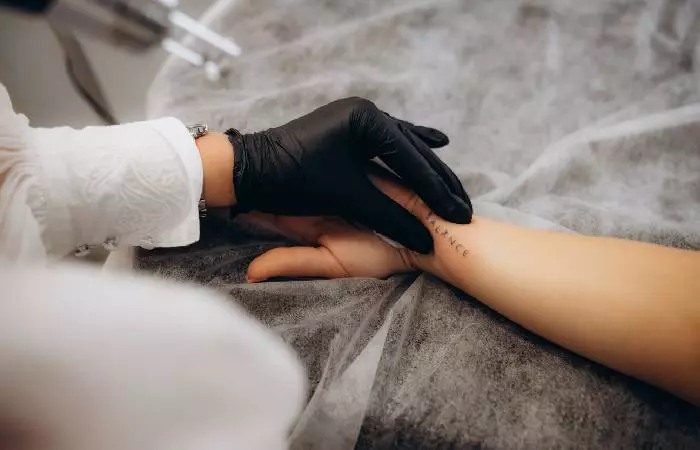
Getting a tattoo is of course your personal decision; however, getting a tattoo right before a surgery might cause recovery issues. The skin needs time to heal after getting inked, and fresh tattoos can increase the risk of infection. Surgeons prefer a clean, healthy canvas to work with during surgery to minimize any potential complications. It is always ideal to discuss with your surgeon about any such decisions to get body art to ensure everything goes smoothly.
Entering surgery with a recent tattoo can cause additional stress to your body, raising the chances of post-surgery complications. Tattoos take 4-6 weeks to heal fully, and during this time, the risk of infection increases, especially when the body is additionally stressed due to the healing process from the surgery. If the tattoo is far from the surgery site, it is considered safer, but it is generally advised to wait it out until the tattoo recovers completely.
Healing the skin after the tattooing process is as important as healing it after the surgery. So, can you schedule a tattoo appointment after a surgery? Read on to find out.
Key Takeaways
- It is best to avoid getting a tattoo right before surgery to reduce infection risks and allow time for proper healing.
- You may postpone tattooing to after the surgery until fully healed to support both surgery recovery and tattoo healing.
- Consult with your surgeon for personalized medical advice before considering a tattoo near surgery areas.
- If getting inked before surgery, prioritize choosing a reputable artist, hygiene measures, small designs, and proper aftercare to minimize risks.
Can You Get A Tattoo After Surgery?
Yes, you can get a tattoo after surgery, but the question then is, how soon after can you get one. Most people prioritize getting a tattoo once they are fully healed from the surgery to reduce any risk of complications. Getting inked after the recovery period is better, as it helps reduce the added stress on the immune system, improving the condition for both the surgery and tattoo healing periods. If the surgery area is close to the tattoo area, waiting it out may also provide a smoother surface for the tattoo artist to work on, resulting in better ink retention and a higher-quality final tattoo appearance.
Amy, a lifestyle blogger, shared her experience of getting a nipple tattoo after her breast reconstruction surgery. She had to undergo a mastectomy due to a cancer diagnosis and planned on nipple tattooing once it was healed. In her blog, she writes, “A month after healing, I will have a short, outpatient surgery for nipple reconstruction and when that is healed, I will get them tattooed with pigment (i).”
Tattooing after surgery supports better skin health, reduces the chance of skin infections, and aids in the optimal healing of both the surgical area and the tattoo. But how soon after can you get a tattoo to avoid post-surgical complications? Scroll down to find out the ideal time after the surgical procedure to avoid potential risks.
Ideal Waiting Period For A Tattoo After Surgery
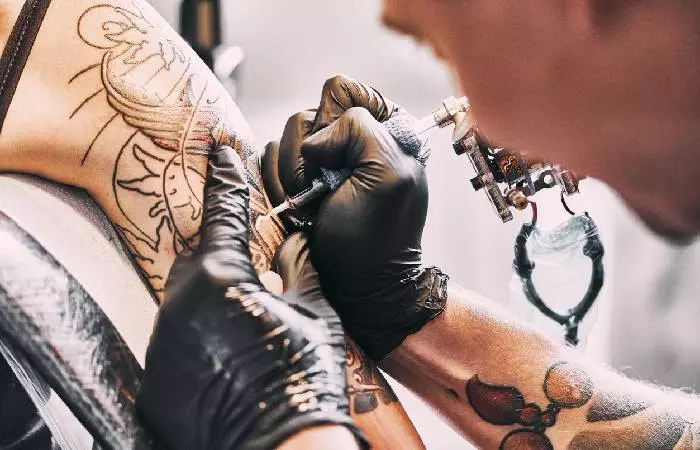
The waiting period can vary from person to person, depending on the location and size of the tattoo and the location and type of surgery. Usually, it is best to wait for a minimum of 9 weeks after your last surgery, or until your surgeon gives the go-ahead for a tattoo. If any surgery scars remain visibly red or purple and appear inflamed after this period, it is advisable to postpone getting a tattoo until they have had their required recovery time. Nevertheless, it is best to consult with your plastic surgeon (in case of skin surgery or reconstruction) or medical professional for personalized advice.
However, if you are keen on getting yourself inked before a surgery, you need to know the potential risks associated with it. Keep reading to know more.
Risks Of Getting A Tattoo Before Surgery

- May Lead To Skin Infection
Getting a tattoo before surgery is risky as the layers of skin are penetrated by needles to deposit tattoo ink. This creates tiny open wounds that may get infected easily if the proper healing period and tattoo aftercare is neglected. Contaminated tattoo inks, insufficient skin disinfection before tattooing, and scratching during the healing process of a fresh tattoo can cause bacteria to enter the blood and cause foreign body reactions (1). Moreover, the risk of infection from these open wounds can result in tattoo side effects such as chronic complications, including fever. This infection risk from open wounds may lead to surgeons often delaying the procedures for recently tattooed individuals. You may be given antibiotics before surgery to lower infection chances and speed up the tattoo healing time.
- May Damage The Skin Tissues
If your recent tattoo is near the surgical area, it will increase the risk of skin damage and the tattoo getting distorted as the ink takes time to fully settle into your dermis, potentially causing the ink to enter your bloodstream. This might cause further damage to your body and general health as well as distort the tattoo design. Also, getting a tattoo just before surgery could lead to increased pain and heightened sensitivity during your recovery.
- May Increase The Risk Of Allergic Reactions

Tattoos often trigger swelling and inflammation in their location, potentially hindering a proper recovery, especially post-plastic surgery. Moreover, the pigments in tattoo inks might cause allergic reactions during or after healing, leading to pre- and post-surgery complications. Therefore, to avoid chances of skin irritation and improve the healing of tattoos, it is best to not get a tattoo before the surgery process.
- May Delay Healing
The healing of tattoos usually takes weeks, during which the body directs its immune system toward repairing the tattooed skin. This focus on healing the inked area might potentially slow down the recovery of surgical wounds. Also, it might affect the aftercare procedures you need to perform for your tattooed skin, delaying the healing time further.
 Pro Tip
Pro Tip- May Impact Blood Tests Results
The tattoo pigment can spread in the body through the blood and the lymphatic system (2). It can travel through the bloodstream from the tattooed skin to the liver which is responsible for detoxification. Though it is rare, and you need not worry about it when opting for experienced tattoo artists, trace amounts of ink particles leaking into the blood can affect blood test results before surgery.
- May Lead To MRI Complications
One of the reasons why medical professionals ask whether you have tattoos before conducting surgery is because certain colors of decorative tattoos contain iron oxide. Iron or ferric oxide behaves like a magnet around other magnetic things, such as an MRI machine, which is a cause for concern (3). Therefore, having a tattoo while undergoing an MRI scan might increase the risk of complications, potentially causing side effects like sudden pain and a burning sensation of the skin (4).
 Trivia
Trivia- May Increase The Risk Of Bleeding
During your post-operative care, your surgeon may prescribe you blood-thinning medications or antithrombotic treatments, like aspirin, to reduce the risk of blood clots. Since the tattoo is an open wound, there is a potential risk of excessive bleeding during the tattoo healing if you take these after getting a tattoo (5). This, in turn. may lead to preventing the ink from setting properly.
Now that we have covered the risks of getting a tattoo prior to a surgery, read on to learn about certain precautions you might need to take to reduce risks. Scroll down to know more.
Getting A Tattoo Before Surgery: Precautions To Take

If you decide to get a tattoo before surgery, it is important to take certain precautions to minimize the risks involved. One crucial step could be understanding how to prepare for a tattoo. Here are some steps you should consider:
- Before getting inked, talk to your surgeon for personalized advice based on your medical history and upcoming surgery.
- Choose a reputable tattoo artist who prioritizes hygiene practices, such as using sterile equipment, and follows strict infection control.
- Opt for a small, uncomplicated tattoo to lessen the impact on your body and speed up healing.
- Ensure there is enough healing time for your tattoo before undergoing surgery to minimize complications and risk of infection.
- Follow your tattoo artist’s aftercare guidelines diligently, including keeping the tattoo clean and protecting it from excessive sun exposure.
While getting a simple tattoo is a personal choice, it is generally advisable to avoid getting inked right before an operation due to various reasons that may harm your tattoo, and result in overall health complications. Fresh tattoos can increase infection risks and interfere with both the tattoo and surgical healing processes. No matter if it be a health-related or cosmetic surgery, take some time off to minimize complications with the healing tattoo. However, this healing period varies from person to person. Therefore, consulting with your surgeon and choosing a professional tattoo artist are critical steps before deciding on this issue. Following proper aftercare instructions from your tattoo artist can further support a smooth healing process. Ultimately, informed decisions and necessary precautions may help reduce potential risks linked to tattooing before surgery.
Frequently Asked Questions
Can getting a tattoo before surgery affect the anesthesia?
Administering anesthesia near the spine numbs the body for surgery. A lower back tattoo could pose challenges for the anesthesiologist by blocking the specific area for needle insertion to work on. Also, a fresh tattoo might risk ink entering the spinal region, potentially leading to health issues.
Are there any specific tattoo inks to avoid before surgery?
It is advisable to avoid getting tattoos with inks containing metallic components, particularly those with iron oxide or other metals. These metallic compounds can interfere with medical procedures such as electrosurgery, where electric current is used to burn skin tissue. Furthermore, what lends the tattoo ink its pigments may have its sources in toxic compounds, which may be unleashed when undergoing laser treatments (6).
Illustration: Can You Get A Tattoo Before Surgery? Things To Know
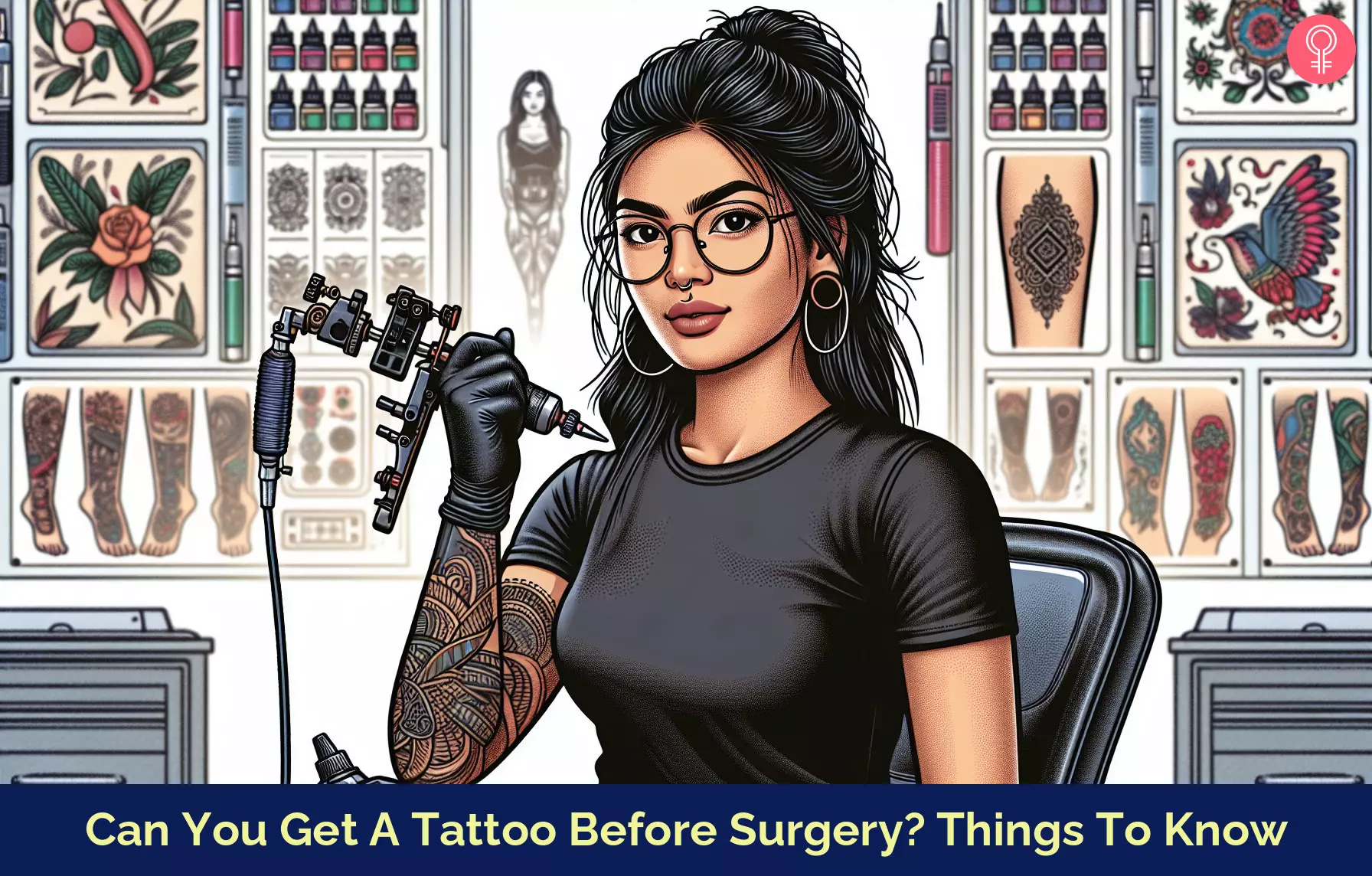
Image: Dall·E/StyleCraze Design Team
If you are wondering about getting a tattoo after surgery, this video is for you. Watch to learn the ideal waiting period for getting inked post-operation, and discover when it is safe to ensure optimal healing.
Personal Experience: Source
StyleCraze's articles are interwoven with authentic personal narratives that provide depth and resonance to our content. Below are the sources of the personal accounts referenced in this article.
(i) Breast Redo’s & Nipple Tattooshttps://amynewnostalgia.com/breast-redos-nipple-tattoos/
References
Articles on StyleCraze are backed by verified information from peer-reviewed and academic research papers, reputed organizations, research institutions, and medical associations to ensure accuracy and relevance. Read our editorial policy to learn more.
- Complications of tattoos and tattoo removal: Stop and think before you ink
https://www.ncbi.nlm.nih.gov/pmc/articles/PMC4411590/ - Tattoo pigments are observed in the Kupffer cells of the liver indicating blood-borne distribution of tattoo ink
https://pubmed.ncbi.nlm.nih.gov/28486229/ - MRI interaction with tattoo pigments: Case report, pathophysiology, and management
https://pubmed.ncbi.nlm.nih.gov/9145144/ - Tattoo complications and magnetic resonance imaging: A comprehensive review of the literature
https://pubmed.ncbi.nlm.nih.gov/32216450/ - Common questions about warfarin
https://www.nhs.uk/medicines/warfarin/common-questions-about-warfarin/ - Treatments of a phthalocyanine-based green ink for tattoo removal purposes: Generation of toxic fragments and potentially harmful morphologies
https://pubmed.ncbi.nlm.nih.gov/32472170/
Read full bio of Ashutosh Bairagi
Read full bio of Shreya Mukherjee
Read full bio of Madhumati Chowdhury
Read full bio of Gazala Firdos Ansari





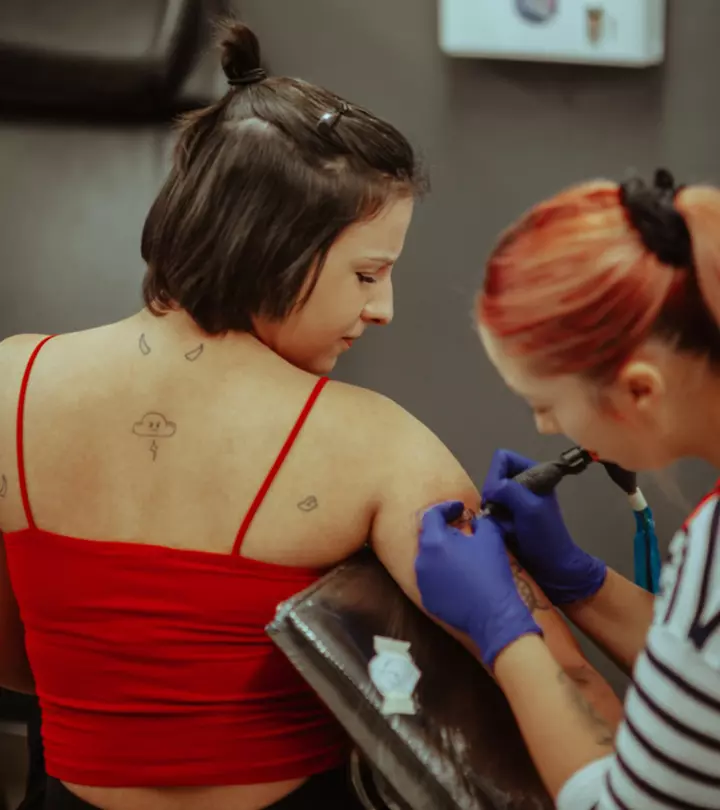













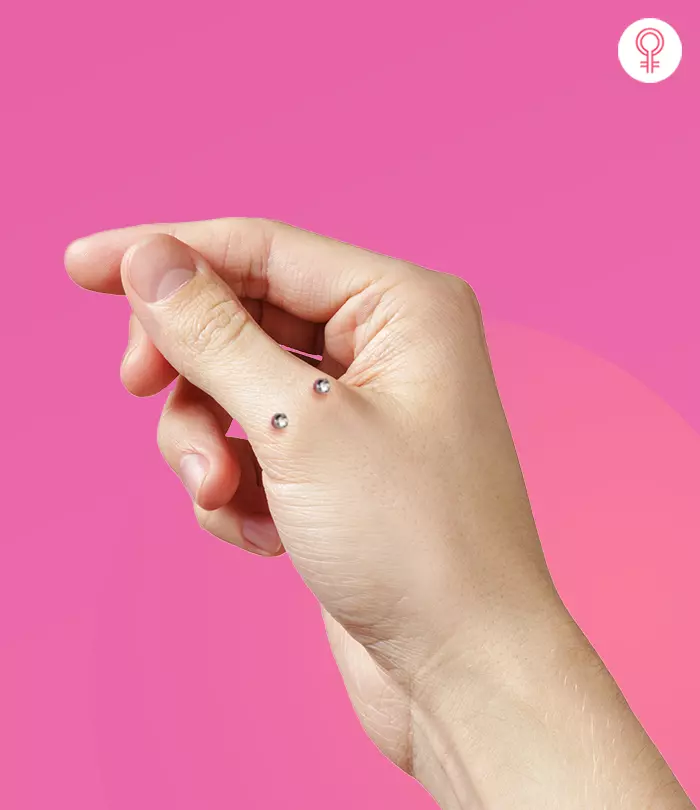






Community Experiences
Join the conversation and become a part of our empowering community! Share your stories, experiences, and insights to connect with other beauty, lifestyle, and health enthusiasts.